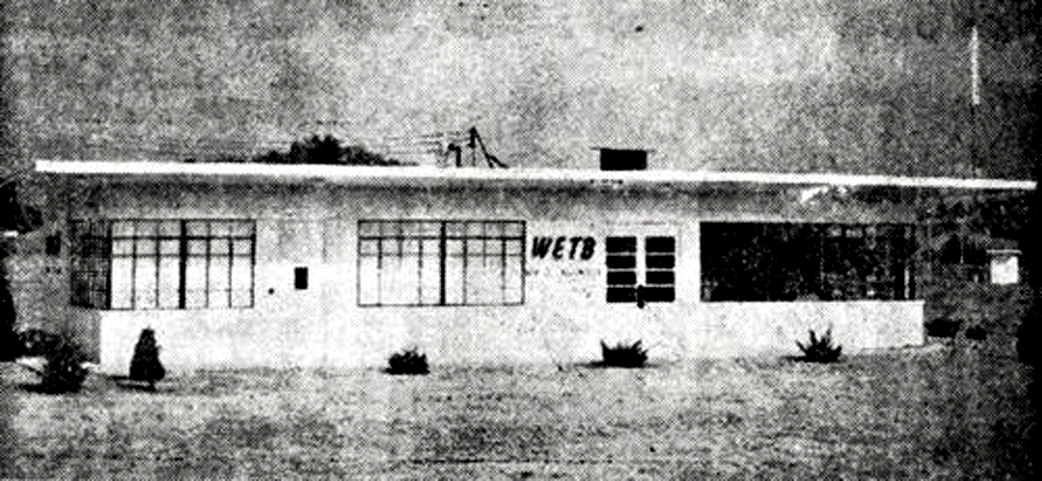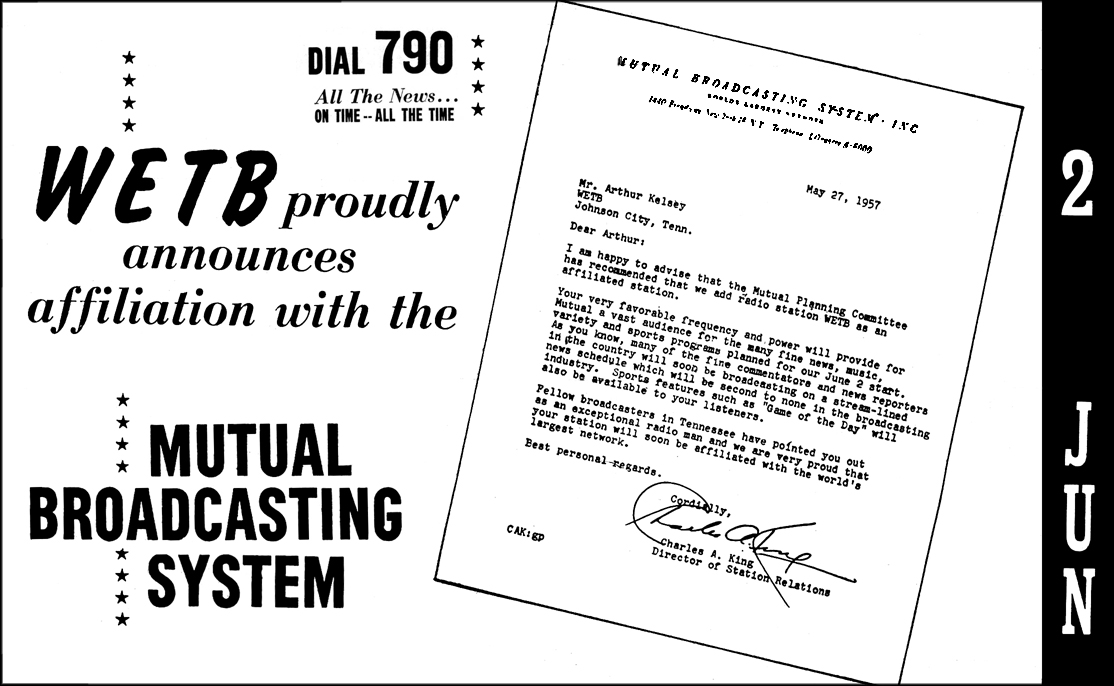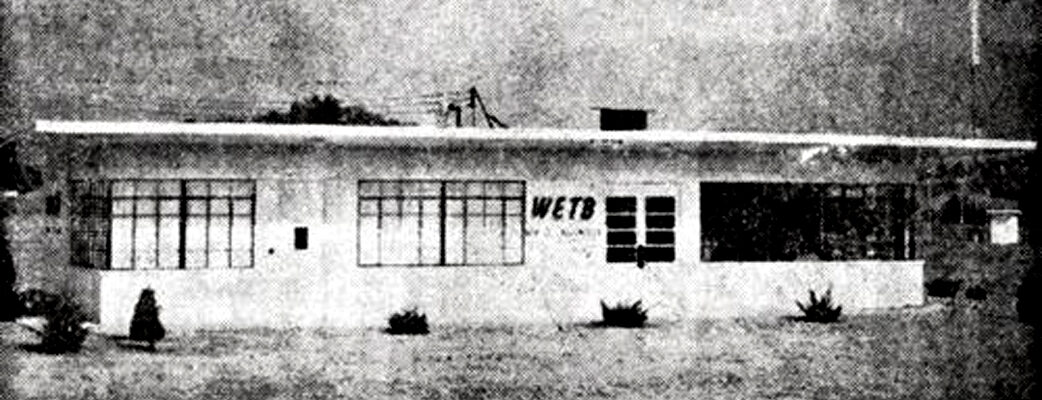The May 27, 1957 edition of the Johnson City Press-Chronicle occupied an entire page in the newspaper with the words: “WETB proudly announces affiliation with the Mutual Broadcasting System.” It went into effect on June 2 of that year.

WETB Radio As It Once Appeared on the Johnson City-Erwin Highway
Included was correspondence from Charles A. King, the network's Director of Station Relations, addressed to Mr. Arthur “Bud” Kelsey of radio station WETB in Johnson City. The small station was situated on the Erwin Highway for many years.

The letter stated: “Dear Arthur: I am happy to advise that the Mutual Planning Committee has recommended that we add radio station WETB as an affiliated Station.
“Your very favorable frequency and power will provide for Mutual a vast audience for the many fine news, music, variety and sports programs planned for our June 2 (sign on). As you know, many of the fine commentators and news reporters in the country will soon be broadcast on a stream-lined news schedule, which will be second to none in the broadcasting industry. Sports features, such as “Game of the Day,” will also be available to your listeners.
“Fellow broadcasters in Tennessee have pointed you out as an exceptional radio man and we are very proud that your station will soon be affiliated with the world's largest network. Best personal regard. Cordially, (signed) Charles A. King.”
The Mutual Broadcasting System, commonly referred to as Mutual; was an American radio network in operation from 1934 to 1999. In the golden age of radio, Mutual was best known as the original network home of several radio shows:
“Queen for a Day” featured women selected from the studio audience explaining why they needed a specific item. The winner was picked using a studio applause meter, crowned “Queen for a Day” and given the desired gift and plus additional goodies.
“Bob (Elliott) and Ray (Goulding)” satirized the medium in which they were performing, by conducting radio or television interviews, with unconventional dialogue, presented in a generally deadpan style as though it was a serious broadcast.”
“The Lone Ranger” opened with Rossini's William Tell Overture” (“With his faithful Indian companion, Tonto, the daring and resourceful masked rider of the plains led the fight for law and order in the early western United States. Nowhere in the pages of history can one find a greater champion of justice. Return with us now to those thrilling days of yesteryear.”)
“The Adventures of Superman” (Superman, alias Clark Kent, was a mild-mannered reporter for The Daily Planet. “Look! Up in the sky! It's a bird! It's a plane! It's Superman!”)
“The Shadow's” opening theme proclaimed, “Who knows what evil lurks in the hearts of men? The Shadow knows. The dialog was followed by a sinister laugh.” “Once again your neighborhood Blue Coal dealer brings you the thrilling adventures of “The Shadow,” the hard and relentless fight of one man against the forces of evil.”
Sports programming included baseball, “Game of the Day,” Harry Wismer, and Frank Frish, named the “Fordham Flash” and “the Old Flash.”
For many years, Mutual was a national broadcaster for Major League Baseball (including the All-Star Game and the World Series), the National Football League and Notre Dame football. From the mid-1930s and for decades after, Mutual ran a highly respected news service accompanied by a variety of popular commentary shows.
Well-known sports commentators included Gabriel Heatter (American radio commentator whose World War II era sign-on, “There's good news tonight,” which became both his catchphrase and his caricature), Fulton Lewis (prominent conservative American radio broadcaster), Cedrick Foster (the first daytime commentator to be heard nationally on a daily basis), Sam Hayes (sports commentator) and numerous others.
The Mutual Broadcasting System also included a wide variety of favorite local shows and news, Town Talk, popular and country record shows, official weather forecasts, local sports news and Little League baseball.
